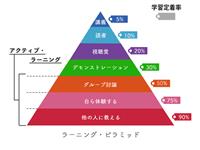Lesson 5
Completing the Accounting Cycle
Self-Test
Answer the following questions:
what are the four closing entries?
what is the purpose of income summary account?
how is an unearned revenue classified of the balance sheet?
what account(s) are effected by closing entries? What accounts are not affected?
describe the similarities and differences between adjusting and closing entries
T or F questions
1. An after—closing trial balance consists only of asset, liability, and owner’s equity accounts.( )
2. Adjusting and closing entries ordinarily do not affect the Cash account.( )
3. Income Summary account is a permanent account. ( )
4. balance sheet accounts are all permanent account ( )
5. after closing entries the temporary accounts are all have zero balance. ( )
Multiple choice
1. The purpose of making closing entries is to:
a Prepare revenue and expense accounts for the recording of the next period’s revenue and expenses.
b Enable the accountant to prepare financial statements at the end of the accounting period.
c Establish new balances in the balance sheet accounts.
d Reduce the number of expense accounts.
2. In the closing of the accounts at the end of the period, which of the following is closed directly into the Retained Earnings account?
a Depreciation Expense.
b Accumulated Depreciation.
c Revenue and liability accounts.
d The Income Summary account.
3. Closing entries never involve posting a credit to the:
a Income Summary account.
b Accumulated Depreciation account.
c Dividends.
d Depreciation Expense account.
4. When a business closes its accounts only at year-end:
a Financial statements are prepared only at year-end.
b Adjusting entries are made only at year-end.
c Revenue and expense accounts reflect year-to-date amounts throughout the year.
d Monthly and quarterly financial statements cannot be prepared.
5. Which of the following amounts appears in both the Income Statement debit column and the Balance Sheet credit column of a worksheet?
a Net income.
b Net loss.
c Dividends.
d Retained earnings.
中山大学:基础会计学(推荐下载):lesson05-selftest
| 课件名称: | 中山大学:基础会计学(推荐下载) |
| 课件分类: | 管理 |
| 课件类型: | 教学课件 |
| 文件大小: | 32.82MB |
| 下载次数: | 11 |
| 评论次数: | 8 |
| 用户评分: | 8 |
- 62. 中山大学:基础会计学(推荐下载):Lesson01-exercises
- 63. 中山大学:基础会计学(推荐下载):Lesson01-selftest
- 64. 中山大学:基础会计学(推荐下载):Lesson02-exercises
- 65. 中山大学:基础会计学(推荐下载):lesson02-selftest
- 66. 中山大学:基础会计学(推荐下载):Lesson03-exercises
- 67. 中山大学:基础会计学(推荐下载):lesson03-selftest
- 68. 中山大学:基础会计学(推荐下载):Lesson04-exercises
- 69. 中山大学:基础会计学(推荐下载):lesson04-selftest
- 70. 中山大学:基础会计学(推荐下载):Lesson05-exercises
- 71. 中山大学:基础会计学(推荐下载):lesson05-selftest
- 72. 中山大学:基础会计学(推荐下载):Lesson06-exercises
- 73. 中山大学:基础会计学(推荐下载):lesson06-selftest
- 74. 中山大学:基础会计学(推荐下载):Lesson07-exercises
- 75. 中山大学:基础会计学(推荐下载):lesson07-selftest
- 76. 中山大学:基础会计学(推荐下载):lesson08-exercises
- 77. 中山大学:基础会计学(推荐下载):lesson08-selftest
- 78. 中山大学:基础会计学(推荐下载):Lesson09-exercises
- 79. 中山大学:基础会计学(推荐下载):lesson09-selftest
- 80. 中山大学:基础会计学(推荐下载):Lesson10-Exercises



